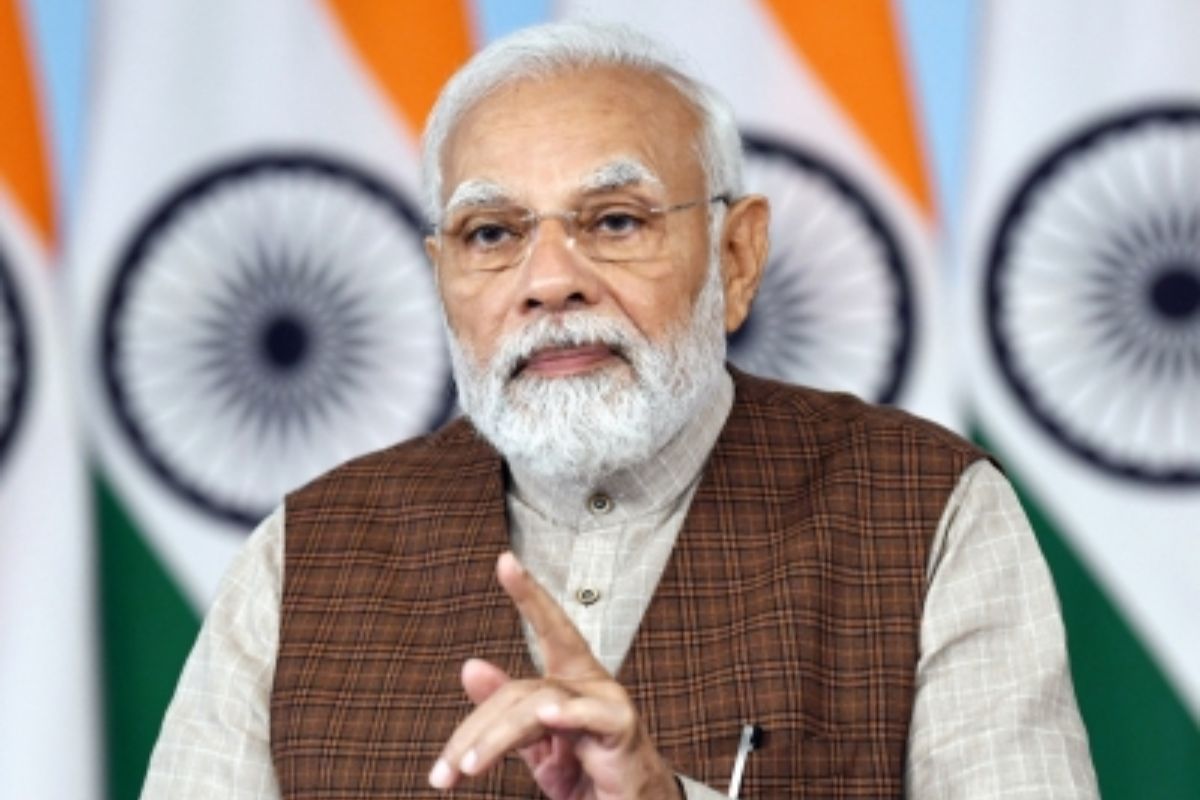In 2015, Prime Minister Narendra Modi had a unique suggestion for the listeners of ‘Mann ki Baat’- “I thought that we call or know people as handicapped since they are lacking in some ways in terms of their body structure or whose organs do not function properly. However, when we interact with them, we realize that…God has bestowed upon them some different power which we cannot see with our eyes, but it is only when we see them working that we realise their talent.
So, I thought why not use the term ‘Divyang’ instead of ‘viklang’ in our country.” This was the start of a revolutionary approach towards inclusivity and accessibility in the field of disability and I can confidently say that this is the power of this medium, which the Prime Minister has realised and internalised.
Advertisement
With over three decades of my association with this sector and being on the wheel chair myself, I have observed that the nation faces certain pressing challenges when it comes to divyangjans. The three most crucial ones are unproductivity, education and accessibility.
However, in the past decade, a paradigm shift has been seen in the country under the visionary leadership of our Prime Minister. With the vision of ‘Sabka Saath, Sabka Vikas’, the launch of the Accessible India Campaign, on 3 December 2015, was a necessary step taken in the direction of providing equal opportunity to persons with disabilities to participate in all aspects of life and live independently. But along with this Government policy, it was equally necessary to initiate a change in the narrative around such people or as I like to call it, “Mass Advocacy for Behaviour Change”.
Today after seven years of that radio address, the change in the attitude of people towards persons with disabilities is quite apparent in society. ‘Mann ki Baat’ connects our Prime Minister directly with the masses where he speaks extensively about the cause and this generates energy for individuals and organizations to work more in their respective areas. It has helped change public perception about persons with disabilities across sectors, be it media, education or sports, for which several Paralymians have even thanked the Prime Minister.
From inviting ideas for innovation that may assist the divyangjan to increasing awareness regarding the existing initiatives and policies for them, the Prime Minister frequently utilises the platform of ‘Mann ki Baat’ to not let the light go out on this important subject.
Even the smallest of innovative and inspiring initiatives being taken in the country are brought to the fore by him in his radio address. Take for example Muscular Dystrophy, an inherited disorder that causes progressive loss of muscle mass, which was highlighted in the 95th episode of Mann Ki Baat aired on 27 November 2022, where the Prime Minister talked about our institute, Indian Association of Muscular Dystrophy that worked wonders in spreading awareness around the disease. Although there is a long, long way to go, the renewed interest in the lives and rights of persons with disabilities is what will take us to newer heights of success.
As this transformative ‘Mann Ki Baat’ programme is reaching an important milestone of 100 episodes on 30 April 2023. I am hopeful that this platform will be an important medium to realize the vision of an inclusive India, even in times to come. Some of the important subjects that require more awareness are ‘Universal Design’ to increase accessibility for divyangjans, the approach of ‘Reasonable Accommodation’ to create a level playing field for divyangjans in the workplace, and promoting a substantial market opportunity for potential startups and innovators to enter the Assistive Touch (AT) sector with its demand on the rise.
India’s presidency of the G20 with the theme “One Earth – One Family – One Future” presents an opportunity to prioritize the inclusion of individuals with disabilities in discussions surrounding growth and development. This would position India as a global leader in promoting inclusivity and accessibility – a noble goal to aim for as India approaches its centenary.
To this end, it is suggested that a yearlong campaign be implemented wherein the 11th of every month is designated as a “Special Day for Disability.” This day would be an occasion to commemorate, celebrate, and support persons with disabilities by offering jobs, sharing stories of courage and initiatives, and there is no better platform than ‘Mann Ki Baat’ to initiate this idea. The choice of 11 as the symbolic date signifies the concept that small efforts when combined can yield significant outcomes.
Thus, every contribution towards promoting disability rights and inclusion is valuable and should be acknowledged. I am looking forward to the upcoming 100th episode of ‘Mann Ki Baat’ and to hear our Prime Minister’s words of wisdom on various issues of national importance.
I am confident that the steps taken by the Government, that are instilling a ‘Can Do’ attitude in all of us, will continue to be talked about and featured in and through ‘Mann Ki Baat’ so that the whole country can be filled with enthusiasm for building an inclusive India, fulfilling the ‘Panch Pran’ given by the Prime Minister, as we walk into ‘Amrit Kaal’.
(The writer – seen in the photograph – is President, Indian Institute of Muscular Dystrophy. This article has inputs from the National Centre for Promotion of Employment for Disabled People)









